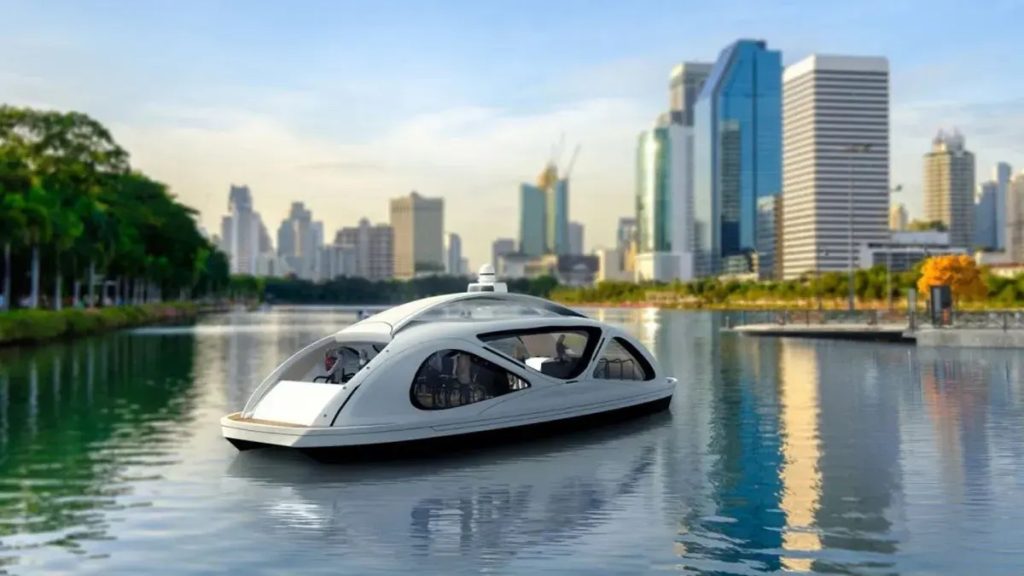The first self-driving commercial passenger ferry powered by electricity will start operating in Stockholm in June 2023. The Swedish capital is the first in the world to have achieved the feat of delivering an automated passenger ferry, with a capacity of 25 people, paving the way to solving problems related to congestion while addressing environmental pollution.
Self-driving ferries have the potential to provide a safe, efficient, and sustainable transport solution for urban waterways, helping reduce costs and the impact of ferry transport on the environment.

1. Torghatten
The Norwegian shipping company Torghatten is behind the initiative and will operate the passenger ferry between the Stockholm islands of Kungsholmen and Södermalm Mellarstrand in Stockholm with 15 hours of continuous electric operation every day.
Torghatten typically operates a fleet of ferries that provide transport services along the coast of Norway, connecting communities and providing transport for both passengers and cargo.
“Many large cities around the world have problems with congestion, lack of capacity and environmental and air pollution. Self-driving technology will be part of the solution and will be good for both the climate and people.
Reidun Svarva, Chief Business Development Officer at Torghatten

The boat has a crew of one person in addition to a control room on land. The crew consisting of a captain will be guiding passengers, while the trip will be monitored from a control room. The goal is to control everything from the control room in the long term. The ferry has an open, covered passenger deck with boarding and disembarking at both ends and is 12 meters long.
2. Brødrene
The vessel was built by the Brødrene Aa Shipyard, which has started operating in 1947. The shipyard has created novel building methods and constructed energy-efficient carbon fibre vessels. According to the shipbuilding company, its ferries are designed to be lightweight, energy-efficient, and capable of high speeds.
We see great future possibilities for this type of vessel, at a time when more and more cities are looking at better utilization of the waterways as a means of transport.
General Manager of Brødrene Aa
“This is a very exciting project for us where we combine the technological expertise and experience we have with building energy-efficient speedboats, and get to combine it with the autonomous technical solutions of the future,” said Tor Øyvin Aa, General Manager of Brødrene Aa.
3. Zeabuz
Originally, the project started at the Norwegian University of Science and Technology (NTNU) in Trondheim, which led to the founding of Zeabuz, a Norwegian technology company founded in 2018 and based in Oslo. Zeabuz’s ferries are equipped with advanced sensors and navigation systems, allowing them to operate autonomously and avoid obstacles. The ferries can also be remotely monitored and controlled by a shore-based operator if needed.
“We have learned a lot from our project in Trondheim, and now we are ready to take the next step in creating the world’s first commercial autonomous city ferry. The technology will largely be the same, but in Stockholm we will seriously test the autonomy system in daily operation with passengers in a way that no one has done before,” said CEO of Zeabuz, Erik Dyrkoren, the company which provided the autonomous system for the passenger ferry.













